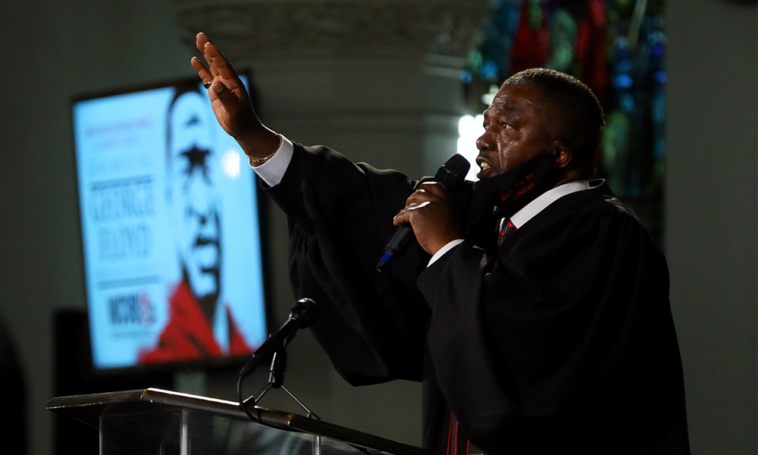Over 1,000 Black pastors representing hundreds of thousands of congregants nationwide have issued a demand for the administration to take a more decisive stance, expressing moral concerns about the suffering of Palestinians and criticizing President Biden’s response to the conflict.
“This campaign is not just a moral appeal; it carries a political warning.” Black faith leaders assert that “many of their parishioners are deeply dismayed by President Biden’s handling of the war, and their continued support for his re-election bid may be at risk.”
The sentiments expressed by these leaders underscore the complexity of the conflict’s impact on U.S. domestic politics, especially within the traditionally steadfast support base of Black voters for the Democratic Party.
The coalition advocating for a cease-fire comprises a diverse group of Black clergy, ranging from conservative-leaning Southern Baptists to more progressive nondenominational congregations in different regions of the country. Their collective effort seeks to influence both policy and public opinion regarding the Israel-Hamas conflict.
The Rev. Timothy McDonald, senior pastor of First Iconium Baptist Church in Atlanta, Georgia, with over 1,500 members, is among the vocal leaders expressing disappointment in the Biden administration’s approach. He emphasizes the challenge of persuading congregants to support Biden in future elections, stating, “We are afraid, and we’ve talked about it — it’s going to be very hard to persuade our people to go back to the polls and vote for Biden.”
The potential impact of any cracks in the traditionally strong foundation of Black support for Biden and the Democratic Party is significant, particularly with midterm elections approaching. Black voters have historically been a key demographic for Democrats, and any erosion in this support could have far-reaching consequences.
The coalition’s concerns extend beyond the immediate issue of the Israel-Hamas conflict. There is a broader sense of disillusionment among Black voters, who feel that the Democratic Party has not done enough to address their concerns.
The war in Gaza has become an unexpected flashpoint, revealing divisions and discontent that could complicate the Democratic Party’s efforts to maintain strong support among Black voters.
The call for a cease-fire is not just a plea for humanitarian concerns but a reflection of the broader sentiment within the Black community. Many Black faith leaders argue that issues of war, militarism, poverty, and racism are interconnected. The Israel-Gaza conflict, unlike conflicts in Iran and Afghanistan, has triggered deep-seated angst among Black people, reminiscent of the civil rights movement.
While the Biden administration has maintained a steadfast alliance with Israel, the increasing pressure from Black faith leaders signals a need to reassess its approach.
These leaders have engaged in sit-down meetings with White House officials, penned open letters, and launched advertisements to convey their message. Their demands include urging President Biden to press Israel to halt its offensive operations in Gaza, secure the release of hostages held by Hamas, and address the broader issue of Israel’s occupation of the West Bank.
The complexity of the situation lies in the dual role these faith leaders play. While their advocacy is rooted in moral principles and a desire for justice, it also carries political implications.
The Biden administration, already facing challenges in maintaining enthusiasm among Black voters, must navigate these complexities to address both the humanitarian concerns of the conflict and the political ramifications at home.




Join the Community and Be a Part of the Conversation
You must be logged in or registered to post a comment.